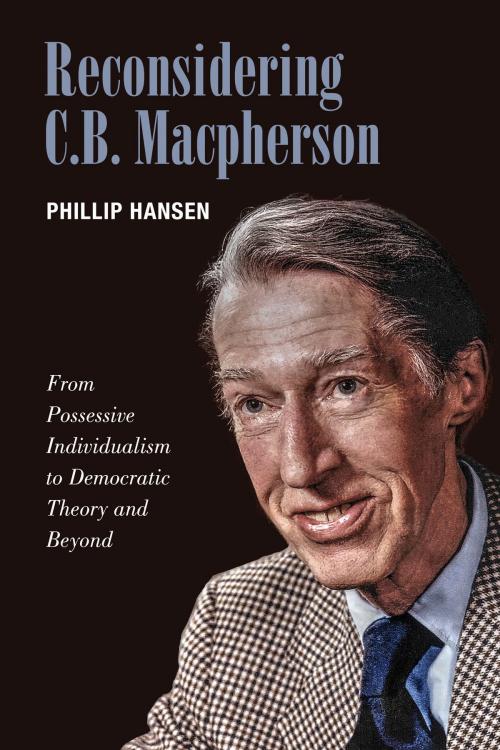Reconsidering C.B. MacPherson
From Possessive Individualism to Democratic Theory and Beyond
Nonfiction, Religion & Spirituality, Philosophy, History, Criticism, & Surveys, Political| Author: | Phillip Hansen | ISBN: | 9781442630611 |
| Publisher: | University of Toronto Press, Scholarly Publishing Division | Publication: | January 28, 2016 |
| Imprint: | Language: | English |
| Author: | Phillip Hansen |
| ISBN: | 9781442630611 |
| Publisher: | University of Toronto Press, Scholarly Publishing Division |
| Publication: | January 28, 2016 |
| Imprint: | |
| Language: | English |
C.B. Macpherson occupies an ambiguous place in contemporary political thought. Though his work is well known, it remains on the margins of current democratic theory. That marginalization, Phillip Hansen argues, comes from our failure to appreciate the underlying philosophical dimension of Macpherson’s work.
Identifying and exploring Macpherson’s systematic critique of the liberal claim that the individual is the “proprietor of his own person or capacities, owing nothing to society for them,” Reconsidering C.B. Macpherson highlights his affinities to Herbert Marcuse, Max Horkheimer, and the Frankfurt School.
This stimulating reappraisal illustrates the importance of Macpherson’s classic books, including The Political Theory of Possessive Individualism and Democratic Theory, and demonstrates how much his work has to offer to the future of political and social thought.
C.B. Macpherson occupies an ambiguous place in contemporary political thought. Though his work is well known, it remains on the margins of current democratic theory. That marginalization, Phillip Hansen argues, comes from our failure to appreciate the underlying philosophical dimension of Macpherson’s work.
Identifying and exploring Macpherson’s systematic critique of the liberal claim that the individual is the “proprietor of his own person or capacities, owing nothing to society for them,” Reconsidering C.B. Macpherson highlights his affinities to Herbert Marcuse, Max Horkheimer, and the Frankfurt School.
This stimulating reappraisal illustrates the importance of Macpherson’s classic books, including The Political Theory of Possessive Individualism and Democratic Theory, and demonstrates how much his work has to offer to the future of political and social thought.















